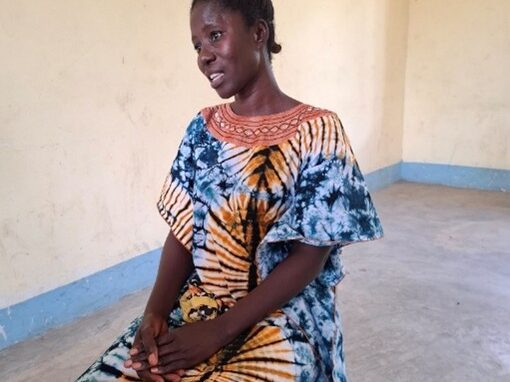“From basic social connections, civic duty, business and enterprise, and governance; everything becomes an extension of the peace that begins in the home.”
– Dr. Hyun Jin Preston Moon at Global Peace Leadership Conference Africa 2024
Young women are quietly rewriting the narrative of leadership. They are challenging divisions, uplifting families, and bringing healing to communities. As part of our Youth Blog Series commemorating International Youth Day on August 12, we celebrate the remarkable young women peacebuilders and initiatives that highlight the lasting transformation that ripples outward. At the forefront of this movement is the Global Peace Foundation (GPF) and its partner, Global Peace Women (GPW), grounded on the principle that Peace Begins in the Home.
In Kaduna State, Nigeria, GPF Nigeria and GPW recently organized a two-day workshop titled “Nonviolent Communication and Leadership Skills.” Hosted in the Hayin Banki community, the training emphasized peacebuilding starting at home, teaching participants to handle family and community conflicts without anger or aggression. One trainee later diffused a heated neighborhood dispute simply by listening and applying mindful communication techniques. Others, like Lucy Abbas, reported stronger family bonds and renewed commitment to peace as a direct result of attending.
Read about Empowering Women and Youth for Peace: A Workshop in Kaduna State
Equally impactful was the economic empowerment effort in the same region. Over 90 women with disabilities, many of them young, received micro-grants and mentorship to start small businesses selling snacks, groundnuts, and traditional fabrics. Through these initiatives, Christian and Muslim women forged friendships, blended their customer bases, and showed that entrepreneurship can be a bridge that brings divided communities together.
Read about Empowering Women with Disabilities in Kaduna State
The theme resonates elsewhere, too. In Brazil, GPF partnered with local schools to introduce nonviolent communication to students and families via music-driven workshops, reminding participants that empathy and creativity can soften hearts and reduce conflict. In Goiania, youth-led peacebuilding sessions made space for deeper conversations on family values, democratic participation, and community responsibility.
Read about how the Brazil Peacebuilding Program Fosters Understanding and Compassion.
These programs illustrate the guiding belief that peace truly does begin at home. This peacebuilding approach is deeply rooted in real life, shaping families, neighborhoods, and schools into environments of dialogue and dignity. When young women lead with care, they inspire others to follow. Yet the most compelling narratives often emerge in the personal moments, the mother sharing trust with her community, the young woman using her new public speaking skills to bridge division, or the niece who learns nonviolent communication by watching her older sister intervene peacefully.
These ripple effects remind us that peace isn’t measured only in treaties or laws; it’s seen in everyday gestures of empathy and kindness. By starting with the nurturing environment of family and neighborhood, young women are building foundations for broader peace and collaboration.
Across regions, GPF’s impact extends well beyond immediate neighborhoods. At the Global Peace Leadership Conferences held over the years, women leaders from various countries, including Malaysia, India, and Uganda, affirmed that restoring family peace is the first step toward repairing societies and inspiring frameworks for public policy. GPF’s global reach with women’s initiatives tests this principle in diverse contexts and across chapters. Young women are showing that transformative leadership starts with listening, caring, and taking action—in homes, families, and micro-communities, layer by layer.
GPF has championed youth, especially young women, as moral and innovative leaders. When young women take the lead, peace is no longer an abstract goal. It becomes a cherished part of everyday life, found in meals shared at home, businesses run with dignity, and dialogues held across faiths. These women-led efforts are pieces of a global movement that believes peace should begin in our most intimate environments.
If there’s one lesson that ties all these stories together, it is that lasting peace is rooted in the soil of our everyday lives. To every young woman reading this: You don’t need an official title or a public platform to build peace. Your voice matters.
As International Youth Day approaches, we want to say:
Thank you for leading courageously and for turning everyday life into a classroom of peace.
Your kindness, creativity, and character are shifting the world; one conversation, one home, one community at a time.
Peace begins at home, and you are its first architects.



